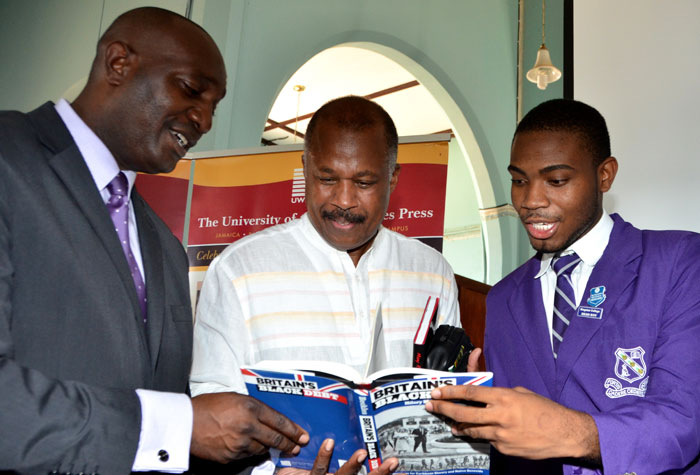Young People Urged to Take Up Reparation Struggle
By: , April 15, 2014The Key Point:
The Facts
- Chairman of the CARICOM Reparations Commission, Professor Hilary Beckles was addressing students, on Tuesday, April 15, at the first in a series of lectures to commemorate Founder’s Week at Kingston College (KC), on North Street.
- Reparation discussions have intensified in the Caribbean over the years, leading to the formation of a coalition of Caribbean countries.
The Full Story
Chairman of the CARICOM Reparations Commission, Professor Hilary Beckles, has charged young people across the Caribbean to take up the reparation struggle and carry on the conversation until the region has received justice.
“This subject is going to go forward and we are going to have justice only when young people step up and play their role,” Professor Beckles said.
He was addressing students, on Tuesday, April 15, at the first in a series of lectures to commemorate Founder’s Week at Kingston College (KC), on North Street. The lecture was entitled, ‘Reparation Justice for the enslavement of black people and the genocide of natives of the Caribbean’.
Reparation discussions have intensified in the Caribbean over the years, leading to the formation of a coalition of Caribbean countries. Under the movement, the group is seeking compensation from Britain and other European nations for the enduring legacy of the slave trade.
Professor Beckles, who is also Pro Vice Chancellor and Principal of the University of the West Indies, Cave Hill, argued that international law provides that chattel slavery, as practised by Britain, was a crime against humanity.
He said that no other race on this planet has endured the kind of slavery that was imposed on the African people, and informed that slavery was invested in by the royal family, the Government, the established church, most elite families, and large public institutions in the private and public sectors.
Professor Beckles, therefore, argued that based on the legal principles of unjust and criminal enrichment, Britain must pay up on the debt owed to subsequent generations of Caribbean people.
He also told the students that they had a significant part to play in the reparation movement, urging them not to allow the conversation to end before they have received justice for the crimes committed against their ancestors.
“There are many people in the world who believe that all they have to do is sit quiet and allow the older leaders of this campaign to pass away,” he said.
“You are the descendants of those who have survived and that gives you, the younger generation, a special responsibility to honour this history,” the Professor emphasized.
Professor Beckles further argued that for the reparation movement in the Caribbean to be successful, those involved must be organised and that they must have pride and dignity in self.
“No matter how long it takes, we are not giving up. Weak people and weak nations do not get reparations. All the cases of reparation in the last 100 years have been won by people and governments who are determined, organised, committed, and by people who have pride and self-esteem,” he said.
Meanwhile, Professor Beckles informed that the reparation movement in the Caribbean made significant strides last month, with the adoption of a 10-point reparation plan by Heads of Government of CARICOM, at their Inter-Sessional Conference in St. Vincent & the Grenadines.
The wide-ranging plan has been formally dubbed a “Reparatory Justice Framework”. Among the demands is a formal apology from former colonial powers, debt cancellation, greater development aid as well as unspecified financial damages for the persisting “psychological trauma” from the days of plantation slavery.
The Atlantic slave trade took place from the 16th through to the 19th centuries.


